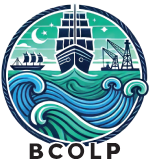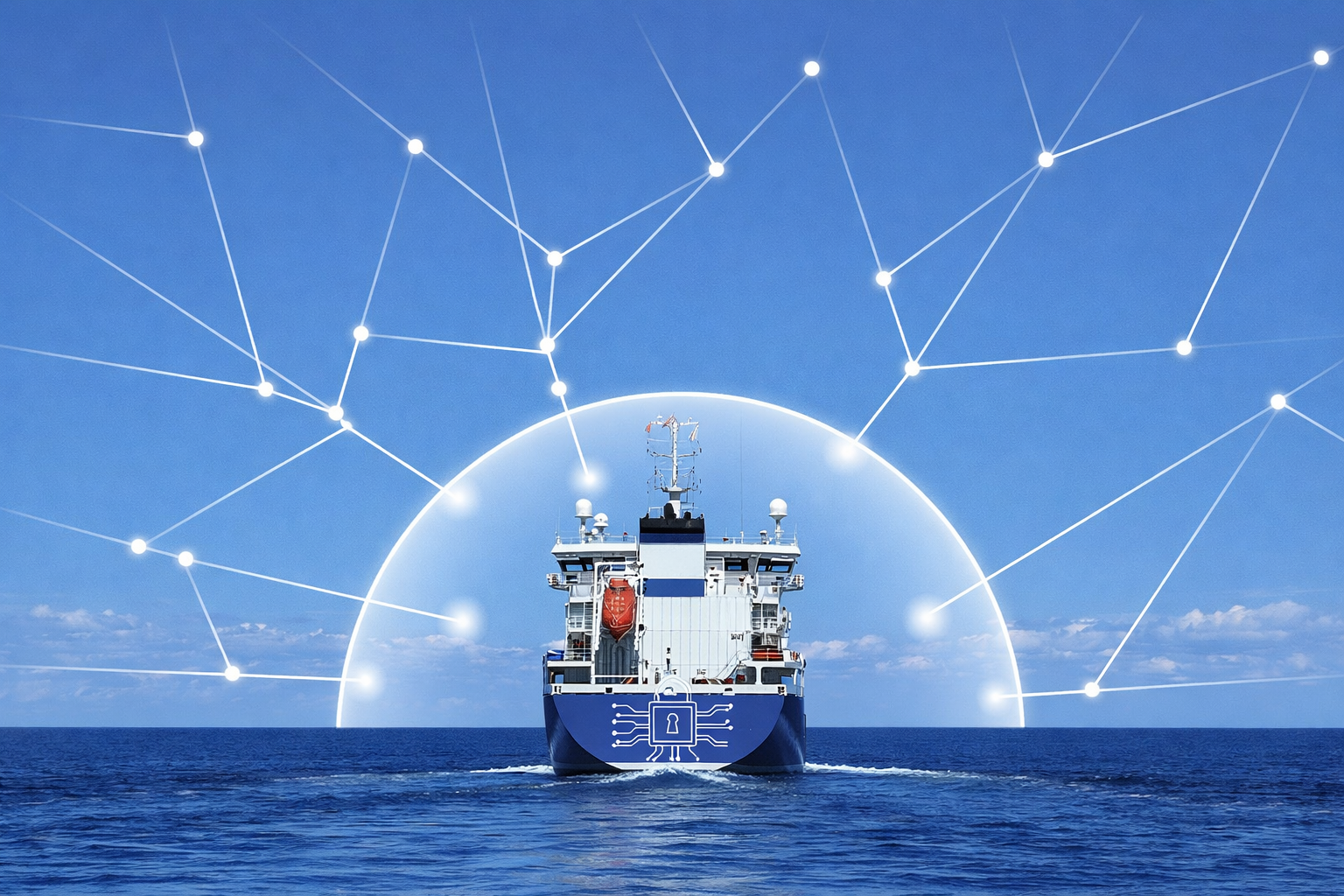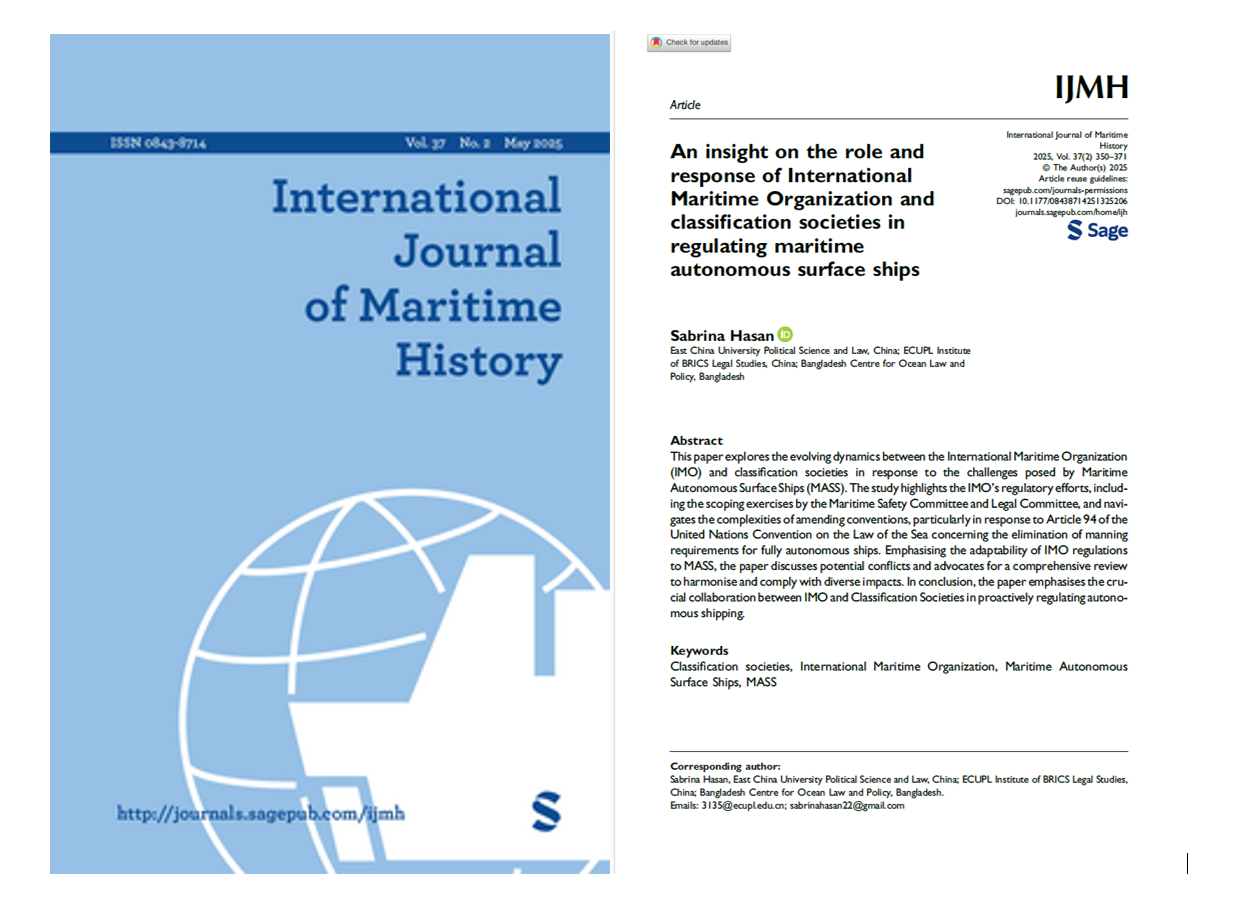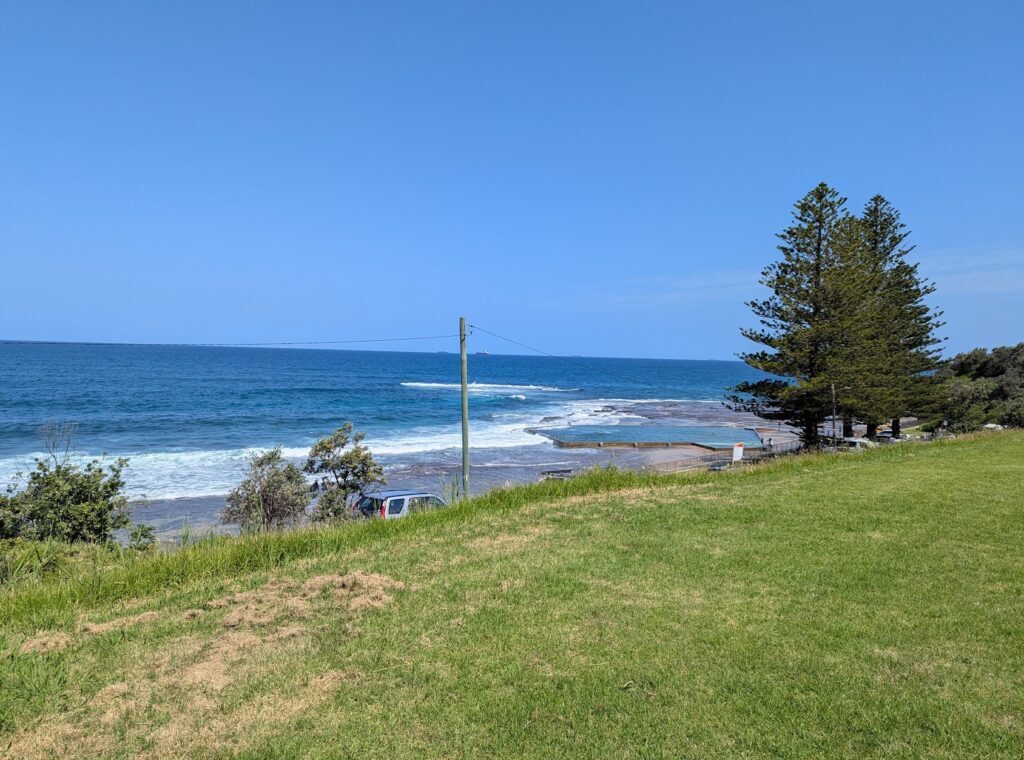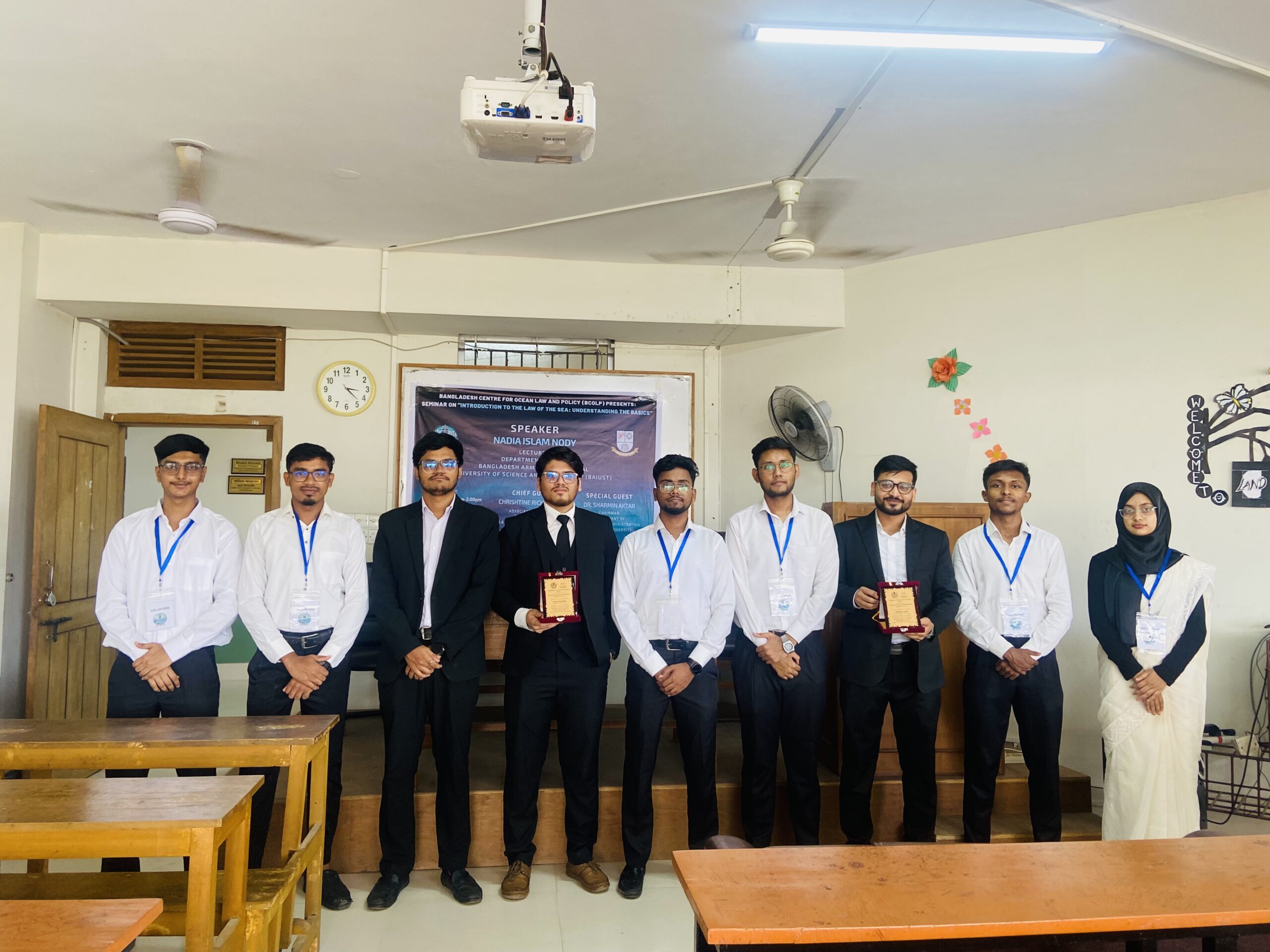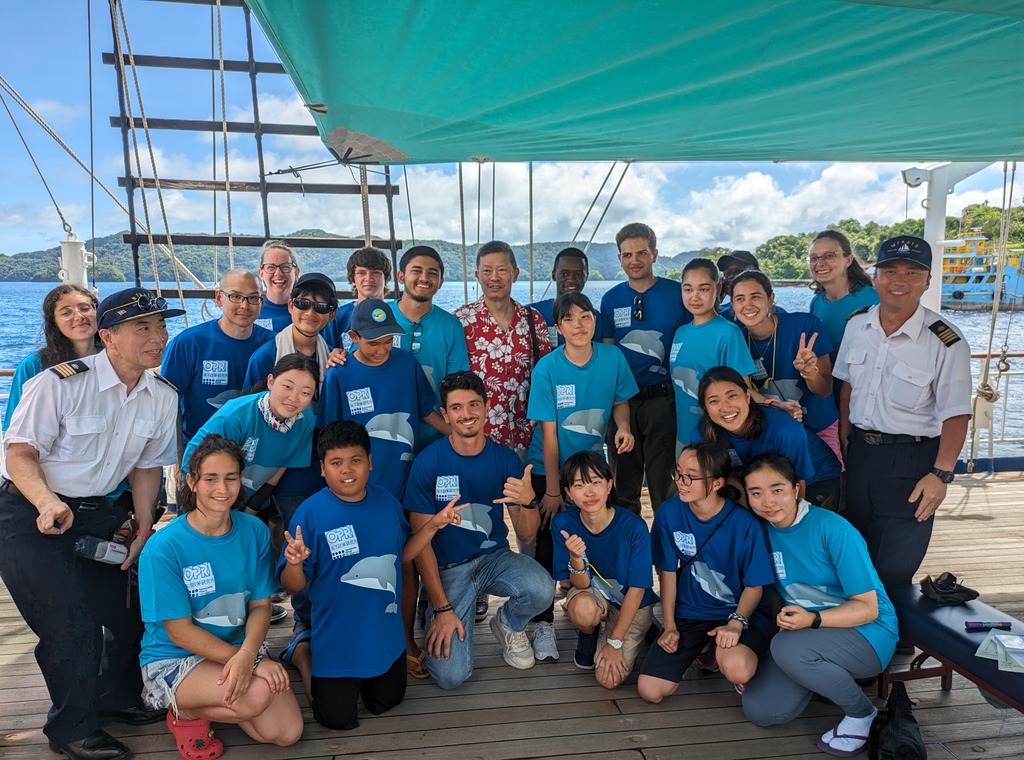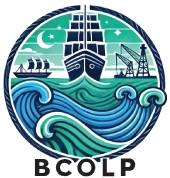C.A.M. Al-Wahi
The Bay of Bengal, spanning approximately 2.2 million square kilometres, is the largest bay in the world. It is home to nearly 1.4 billion people across its coastal nations. (1) The bay boasts abundant natural resources, including fisheries, minerals, hydrocarbons, and maritime biodiversity, and serves as a vital hub for regional and global trade, security, and climate management. However, the region faces numerous challenges, including overfishing, pollution, piracy, unauthorized migration, maritime conflicts, and the impacts of climate change, all of which threaten its long-term sustainability. (2) Therefore, it is crucial to establish effective ocean governance to ensure the peaceful and prosperous development of the Bay of Bengal and its surrounding areas.
Ocean Governance refers to the management of ocean use and conservation, involving various actors such as states, international organizations, civil society, and the private sector. Governance occurs at multiple levels, including local, national, regional, and global. (3) To safeguard the maritime environment and the ecosystem services the ocean provides, governance must balance the often-conflicting demands of various sectors, such as fisheries, shipping, tourism, energy, and security. It must also address the legal domains of territorial seas, exclusive economic zones, and high seas.
However, effective ocean governance is particularly challenging in a complex and dynamic region like the Bay of Bengal, where geopolitical factors such as territorial disputes, resource competition, and strategic alliances play a significant role in shaping the behavior of regional actors. For instance, longstanding maritime boundary disputes between India, Bangladesh, and Myanmar, which have now been resolved, complicated regional cooperation on resource management. Additionally, external powers like China have increased their presence in the region through infrastructure development, heightening strategic rivalries and influencing governance approaches. (4) This intersection of geographical factors and political agendas highlights the need for cooperative frameworks that balance national interests with sustainable governance. (5)
Several factors shape the geopolitics of the Bay of Bengal, including the growing influence of China and India as key players in the Indo-Pacific, the bay’s strategic position as a link between the Indo-Pacific oceans, unresolved territorial disputes, and the influence of external powers such as the U.S., Japan, and Australia. (6) Furthermore, the emerging opportunities and challenges posed by the blue economy, digital economy, and green transition create both rivalry and cooperation, impacting maritime governance in the region.
A paradigm shift in ocean governance, based on blue diplomacy, is essential to effectively navigate these geopolitical challenges and unlock the region’s potential. Blue diplomacy refers to the strategic use of maritime policies, capabilities, and economic initiatives to achieve national objectives and maintain influence in the maritime domain. It seeks to prevent, mitigate, and resolve water-related conflicts in shared waters through the coordinated application of diplomatic tools, expertise, and cooperation mechanisms across various diplomatic tracks. (7)
Blue diplomacy can be implemented at various levels through bilateral and multilateral agreements, regional and sub-regional initiatives, confidence-building measures, joint projects, information-sharing, capacity-building, and dispute resolution mechanisms. Examples of blue diplomacy initiatives in the Bay of Bengal include BIMSTEC, IORA, BCIM-EC, MGC, BOBLME, Maritime Safety and Security Information System, and the Bay of Bengal Initiative for Multi-Sectoral Technical and Economic Cooperation. (8)
However, blue diplomacy in the Bay of Bengal faces challenges, such as a lack of political will and trust among some actors, conflicting interests, power imbalances, overlapping regional frameworks, and gaps in legal and institutional frameworks. (9) To optimize the effectiveness of blue diplomacy, the following measures are essential:
- Reforming regional and sub-regional structures like BIMSTEC and IORA by strengthening political commitment, institutional capacity, financial resources, and operational alignment to ensure better coordination of objectives, priorities, and agendas.
- Improving dialogue and cooperation between key players, especially China and India, through regular consultation mechanisms such as ministerial meetings, working groups, and joint projects like patrols, research, and exercises.
- Resolving potential maritime disputes in the region through negotiation, mediation, arbitration, or adjudication, in line with international law principles like the United Nations Convention on the Law of the Sea (UNCLOS).
- Enhancing non-state actors’ participation in ocean governance and blue diplomacy by providing opportunities for engagement through public hearings, stakeholder forums, and advisory groups, and encouraging their roles in advocacy, monitoring, and innovation.
- Implementing a blue economy strategy for sustainable and inclusive development in sectors like fisheries, tourism, energy, and transport, guided by best practices such as the ecosystem approach, precautionary principle, and polluter-pays principle.
The Bay of Bengal is a region of immense significance and potential but also faces substantial obstacles in terms of ocean governance and geopolitics within the Indo-Pacific. Therefore, adopting a new method of ocean governance—centered on the concept of blue diplomacy—is critical. Blue diplomacy fosters discussion, builds trust, and promotes cooperation among stakeholders, while effectively addressing shared challenges and opportunities. By adopting this approach, the actors in the Bay of Bengal can create a region characterized by peace, economic success, and contribution to global ocean governance and sustainable development goals.
C.A.M. Al-Wahi is a student at the Department of Maritime Law and Policy, Bangabandhu Sheikh Mujibur Rahman Maritime University, Bangladesh.
References
- Henley, J. (2022, February). World leaders descend on France for ocean summit as Macron puts spotlight on seas. Retrieved December 13, 2023, from The Guardian: https://www.theguardian.com/environment/2022/feb/08/blue-diplomacy-france-summit-puts-worlds-spotlight-on-oceans
- Shidore, S. (2023, April 14). Climate Security and Instability in the Bay of Bengal Region. Council on Foreign Relations. https://www.cfr.org/report/climate-security-and-instability-bay-bengal-region
- Gutu, I. (2016). The Transatlantic Blue Diplomacy. CES Working Papers, 8(4), 666-680. Retrieved December 13, 2023, from https://www.econstor.eu/handle/10419/198485
- Water Politics: Between Desertification and Securitization – Time for a Blue Diplomacy. (2023, September 06). Retrieved December 14, 2023, from European Economic and Social Committee: https://www.eesc.europa.eu/en/news-media/press-summaries/water-politics-between-desertification-and-securitization-time-blue-diplomacy
- Jahangir, J., & Ahmed, S. (2023, June). Embryonic World Order: Implications For Pakistan’s Foreign Policy, Geopolitical Agendas And Foreign Affairs. Journal of Positive School Psychology, 7(5), 958-971. https://journalppw.com/index.php/jpsp/article/view/16951/10728
- Anwar, A. (2022, April 1). Positioning the Bay of Bengal in the Great Game of the Indo-Pacific Fulcrum. Journal of Indo-Pacific Affairs, Air University Press –. Retrieved December 14, 2023. https://www.airuniversity.af.edu/JIPA/Display/Article/2980896/positioning-the-bay-of-bengal-in-the-great-game-of-the-indo-pacific-fulcrum/
- Lee-Brown, T. (2022, August 13). Navigating maritime security in the Bay of Bengal. Retrieved December 14, 2023, from East Asia Forum: https://www.eastasiaforum.org/2022/08/13/navigating-maritime-security-in-the-bay-of-bengal/
- Benson, J. (2020, January 16). STABLE SEAS: Bay of Bengal. STABLE SEAS. doi:10.18289/OEF.2020.044
- Safety4Sea. (2020, March 16). Bay of Bengal can achieve sustainable maritime security by setting priorities, report says. Retrieved December 15, 2023, from Safety4Sea: https://safety4sea.com/bay-of-bengal-can-achieve-sustainable-maritime-security-by-setting-priorities-report-says/
